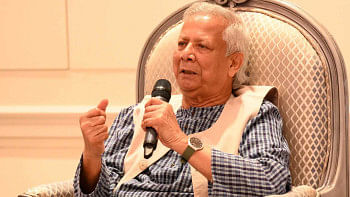Govt bans 3 types of drugs
The government banned three types of medicine, which were registered with the Directorate General of Drug Administration more than four years ago, finding risks of adverse side effects of the drugs.
The Drug Control Committee of the drug administration (DGDA) decided to cancel registration of the drugs at its 244th meeting on July 7 as those run the risks of cancer, heart diseases, kidney and liver damage.
“Production, sale, distribution, preservation and exhibition of the drugs have been totally banned,” according to a notice issued by Maj Gen Md Mostafizur Rahman, director general of drug administration (DGDA), in an official website on August 13.
The drug administration also published an advertisement in a newspaper on August 14 asking all the manufacturing companies to withdraw the banned drugs from the market through their own channels and inform it to the DGDA.
The DGDA also requested people not to buy and use these banned medicine -- Paracetamol 500mg+DL Methionine 100mg meant for common fever and pain and two anti-diabetic drugs Pioglitazone and Rosiglitazone.
The two anti-diabetic drugs have been manufactured in four types -- Pioglitazone 30mg, Pioglitazone 45mg, Rosiglitazone 2mg and Rosiglitazone 4mg.
Sixteen pharmaceutical companies have been manufacturing Paracetamol 500mg+DL Methionine 100mg, while 34 other companies have been manufacturing the four types of anti-diabetic drugs in their own brand names.
Prof Dr Sharfuddin Ahmed, member of the Drug Control Committee (DCC), said they have found in the international medical literature that methionine, which is used in paracetamol, has a number of side effects.
“If any patient regularly takes it, he or she runs the risks of liver damage and cancer,” he told The Daily Star.
On the other side, those taking the anti-diabetic drugs that have been banned run the risks of liver and kidney damage, amnesia and vomiting, Prof Ahmed added.
“These are also less effective and prone to develop drug resistance,” said Prof Ahmed, also pro-vice-chancellor of Bangabandhu Sheikh Mujib Medical University (BSMMU).
He said patients need not worry as there are a number of alternatives to those banned drugs.
He added Bangladesh allows production of any drug if it is registered in the developed countries. However, if eventually any such drug is found ineffective or having adverse side effects, Bangladesh bans it following the path of the developed countries.
Zobaer Al Mahmud, assistant professor of the department of clinical pharmacy and pharmacology at Dhaka University, said it is good that the drug administration has finally banned the drugs that have been debated for many years.
“Side effects of methionine used in Paracetamol have been found about a decade ago. Why Bangladesh has been maintaining its registration is a question,” he told The Daily Star.
Elaborating on the point, Mahmud said use of methionine in paracetamol was introduced to avoid morbidity in the cases who try to commit suicide by taking excessive paracetamol.
“However, it is damaging for the regular patients,” he said, adding that the UK banned methionine use in paracetamol in 2004.
Contacted, Dr Rashid-E-Mahbub, chairman of the National Committee on Health Rights Movement, said business lobby is very strong in the Drug Control Committee (DCC). That is why it does not go for a rigorous analysis before approving any drug, he observed.
“Many people have been taking these drugs. If anyone of them is affected, who is going to compensate them?” he asked.
Dr Mahbub said Bangladesh does not go for conducting clinical trials before introducing any drugs. But, policymakers should think of conducting clinical trial before registering drugs.
Now that the government has banned the drugs, it should give a timeline for the pharmaceutical companies to withdraw the medicine.
Prof Ahmed suggests strong legal action against the manufacturers for non-compliance.

 For all latest news, follow The Daily Star's Google News channel.
For all latest news, follow The Daily Star's Google News channel. 



Comments